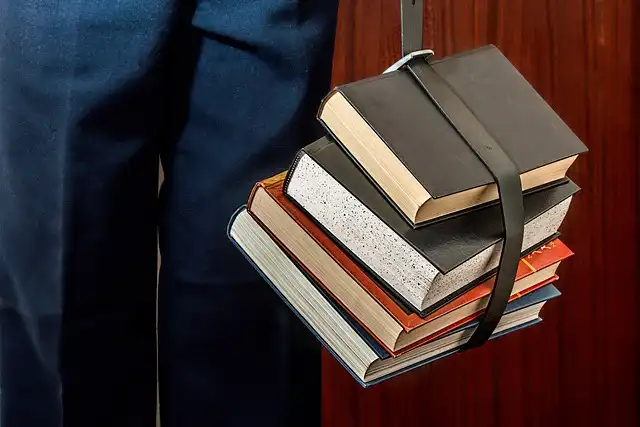Academia Under Threat: Uncertainty & Student Support

American academia faces uncertainty due to funding cuts and political pressures. Institutions focus on student support amidst instability and evolving regulations. International students are particularly vulnerable.
Not surprisingly, none of the academics I talked to intended to be estimated right here by name. What attracted attention from their reactions is a common decision to focus on prompt situation management. It’s not a lot that academics are stunned by the physical violence of the brand-new government plans and regulations let loose by the Trump 2.0 procedure. (Though some are shocked.) Instead, the emphasis on the short run is since no one can yet imagine what the long run will look like.
A large part of the unpredictability dealing with American grad education and learning now emerges from the effect of xenophobic migration plans. Academic managers have been working desperately to handle the legal, economic, and psychological requirements of global college students– and we have lots of them.
Xenophobia’s Impact on Grad Students
Ideological differences with academe clearly drive the financing cuts. Yet the nude temper that the government is now routing at colleges is especially striking: “This administration dislikes college,” a social-science professor claimed, “and it’s taking that hatred out on students.”.
We all follow the headings tracking conflicts at colleges like Harvard and Columbia, but what about the thousands of graduate students at other institutions throughout the nation that just don’t understand what’s coming next? A supervisor of graduate researches in a humanities department at a Southern public university described her initiatives to recommend its international students this year: She has actually looked for contacts for them with the international-student workplace on the school and has dispersed the now-well known “red cards” that listing pupils’ legal rights in the event that they are apprehended. The hail storm of financial strikes has actually left university managers clambering: “Trainees are losing their financing,” claimed an additional Midwestern graduate dean. For the very first time, stated a science professor in the Midwest, “I have 2 pupils in my laboratory who are finishing without their following position in area.”.
Financial Strikes on Universities
A scientific research teacher that instructs in a state with an “intellectual-diversity regulation” (which endangers to technique professors members that fall short to “cultivate a culture of totally free query”) explained her “unpredictability regarding what I can and can not say” in the class. She claimed she has actually “attempted to keep my politics different from my mentoring of students. In the end, she stated, “I feel my speech is being limited.”.
Academic Freedom Under Pressure
This relocate to neighborhood is, as a matter of fact, long past due in graduate education and learning. The storm clouds around us do not nurture much in the way of positive side, yet such a common technique can assist finish programs. “Individuals need connection,” claimed the graduate director. It should not take an existential strike for us to realize that.
Community Support is Key
If pupils can not expect economic assistance for, claim, the fieldwork they require to do, it makes sense to motivate them to choose a various topic. All you can recommend your students is to “proceed to do terrific study, yet be mindful,” said a humanities professor at an university in the South.
Several of the financing losses take evil-minded type. When the National Institutes of Health recently clawed back a give from a graduate student in the social scientific researches at a Northeastern university, the judicial language was followed by a statement that read: “Study programs based primarily on synthetic and nonscientific classifications, consisting of amorphous equity goals, are antithetical to the clinical inquiry, do nothing to expand our understanding of living systems, provide reduced returns on investment, and eventually do not improve health and wellness, lengthen life, or lower ailment.” Such declarations– and that one is normal– are both mean and gratuitous.
Leonard Cassuto is a teacher of English at Fordham University who composes frequently for The Chronicle concerning graduate education and learning. He co-wrote, with Robert Weisbuch, The New Ph.D.: Exactly How to Construct a Better Grad Education And Learning.
Institutions didn’t expand today since their managers doubted. They didn’t know if the federal government money would be renewed, so they kept back. That might look silly to us currently, but we take advantage of hindsight. The past does not recognize the future.
We might also contrast today to an uncertain minute greater than 70 years ago. In 1944, currently anticipating the end of The second world war, Head Of State Franklin D. Roosevelt signed the Servicemen’s Readjustment Act, better known by its nickname: the GI Expense. Among other benefits, it spent for greater than 2 million returning professionals to attend college, even more than ever. Many thanks to that influx of government money, American academe began a duration of exponential development.
The hail storm of financial impacts has left college managers rushing: “Pupils are losing their funding,” said another Midwestern grad dean. For one student, the dean stated, “one workplace has dedicated to covering the wellness insurance policy, and we have various other workplaces that are attempting to help cover the gratuity and the tuition for following year.”.
Learning from the Pandemic Era
Numerous of the professors and administrators I chatted with claimed their pandemic-era experience had actually verified useful in current months. A graduate dean at a Southern college stated he has actually returned to his Covid playbook as an overview to taking care of the swirl around him today: “I attempt to resolve the temporary problems, while I wait to see the bigger form of points.”.
It rapidly created a new standing quo that, despite lots of criticism, has endured. For that and various other reasons, federal government support for greater education and learning has been damaged away over the years.
Not best away. Looking back from where we sit, we see a tale of stable growth. The GI Expense verified to be the initial of a series of major federal investments in higher education over a period of regarding two decades. That’s not how it looked to scholastic administrators in the late 1940s and early 1950s. They understood they were reaping a prompt windfall of federally financed students, however made no assumptions beyond that. During that time, big federal financial investment in college was still new. Registrations swelled– however universities didn’t instantly begin developing new buildings and hiring great deals of brand-new faculty members to teach the groups of new trainees. Although schools quickly became chock-full, the scholastic job market of the early 1950s was in fact limited.
When you’re a dean, it’s also harder. Asked about the scorched-earth method to diversity plans in his state, a Midwestern graduate dean stated tersely, “We will certainly constantly follow the regulation. If the regulation adjustments, we will certainly change what we do.”.
The worth of such caretaking is greater than emotional. It’s additionally tactical. “Everything begins at the same area,” she said: “being educated.” She on a regular basis meets coworkers and students to discuss “just how to secure ourselves, and just how to push back.” It sends out a supportive message to graduate trainees, she claimed, “when professors are on the same web page.” She convenes meetings to share instructional sources and holds workshops on “exactly how to teach under current limitations.”.
The chaos and policy shock waves rising from Washington have actually shuddered throughout academe, with damaging results all over you look. Most of us adhere to the headings tracking problems at universities like Harvard and Columbia, but what concerning the hundreds of graduate students at various other organizations across the nation who merely do not understand what’s following? “Pupils have a great deal of stress and anxiety now,” the dean claimed. “They fidget concerning their futures.”
Experienced workers are currently contending with brand-new doctoral receivers on the work market. “I do not recognize what to say to my pupils,” admitted the science teacher.
Yet we are observing lawful and social resistance, and– gratifyingly– an upswing in pupil treatment. Grad suggesting has constantly been a caretaking endeavor, but it’s specifically so these days. And numerous deans and professors are answering the demand.
European universities have actually traditionally occupied an area between church and state, and over succeeding centuries, have come to be components as public establishments. American colleges and universities are particularly delicate to uncertainty due to the fact that they’re basically free-standing economic entities. (Also public universities and universities here have to raise many of their own funds, generally with tuition.).
Legal Resistance: Protecting Students
She has been adding summer shows for graduate students– which specifically profits international pupils, many of whom are scared to return to their home countries to see their family members over the summer season for concern that they will not be able to return. The dean’s purpose is not just to aid foreign trainees.
The Chronicle of College is academe’s most relied on resource for independent journalism,.
profession growth, and forward-looking knowledge. Our visitors lead, teach, discover,.
and introduce with insights from The Chronicle.
Today this pool of trainees requires assistance of all kinds. A director of graduate studies in a liberal arts division at a Southern public university defined her initiatives to recommend its worldwide trainees this year: She has actually sought calls for them with the international-student workplace on the university and has dispersed the now-well recognized “red cards” that checklist pupils’ legal rights in the occasion that they are apprehended.
Universities are changing what they do– in a different way. A year earlier, in these pages, our interest got on the development of graduate-student unions and on reforms to enhance doctoral training and workplace society. Those discussions have actually been primarily immersed by the Trumpist tsunami. When (and in what kind) they will re-emerge in the upsetting years ahead, it’s unclear.
Just after federal financial investment in college held steady did scholastic administrators approve the presence and loosen up of a brand-new regular– one in which federal government investment transformed colleges into a cumulative r & d laboratory for the entire nation. That federal commitment changed the dimension and range of American higher education. In effect, a partnership created between colleges and the federal government. Greater ed below got bigger, more powerful, and– as a result of the accessibility it afforded to strivers– significantly much more autonomous.
The Southern graduate director has discovered similar worth in “strengthening the college students as an area.” Whether via professional-development activities or just a coffee hour, she desires them “to really feel listened to and sustained, past remaining in course together.” Writing groups “include a level of community” also as they help trainees remain concentrated on their operate in disruptive times.
According to the National Science Foundation, United States citizens or irreversible homeowners received concerning 85 percent of the doctorates awarded by American universities in 1978. Regarding 40 percent of enrolled master’s and doctoral students today are international nationals.
She has actually been adding summertime shows for graduate students– which particularly benefits global trainees, several of whom are afraid to return to their home nations to see their family members over the summer season for worry that they will not be able to return.
New Ph.D. trainees also face brand-new employment issues. Lowered government financing for college will certainly result in lowered task openings on schools going forward. The majority of scientific research Ph.D. s, for instance, go on to postdoctoral placements, yet that economy has actually been interfered with. For the very first time, said a scientific research teacher in the Midwest, “I have two students in my lab that are graduating without their following placement in place.”.
1 affect higher education2 funding cuts
3 graduate students
4 political climate
5 student support
6 Trump administration
« College Cost Transparency: Making College AffordableGaza War: US University Response & Student Protests »
